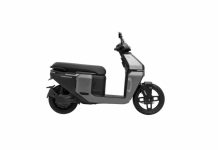BYD Seal
Chinese electric vehicle (EV) manufacturer BYD is experiencing delays in its planned vehicle launches, specifically the Seal EV sedan and the Atto 3 electric SUV. These setbacks, which are common in the automotive industry, can be due to a variety of factors, including production issues, supply chain challenges, regulatory hurdles, or strategic business decisions.
The key points of the report are:
- BYD has delayed the launch of the Seal EV and localized Atto 3 electric SUV in India to 2024.
- The BYD Seal electric sedan was showcased at Auto Expo 2023, with the intention to introduce it by Q4 2023.
- The BYD Seal comes with two battery options: a 61.4 kWh unit offering 550 km of range and an 82.5 kWh pack with a claimed range of 700 km (CLTC-cycle).
- The base single-motor variant develops 201 BHP, while the one equipped with a larger battery packs 308 BHP.
- The dual-motor Seal is available with the larger 82.5 kWh battery pack. It has a combined output of 523 BHP, which enables the car to sprint from 0-100 km/h in 3.8 seconds.
- Speaking of the Atto 3, the carmaker is facing hurdles on the homologation front. This has delayed the introduction of the localized version of the electric SUV.
- A new version of the Atto 3 with an advanced motor is also said to be in the works.
Electric Vehicle
Here’s a more detailed analysis of the situation:
- BYD Seal Delays:
- Technical Specifications: The BYD Seal, as described, is a high-performance EV with significant capabilities in terms of power output and range, notably its large battery options and strong motor performance. Such advanced features require precise engineering, quality control, and component sourcing, which can lead to delays if any complexities arise that were not accounted for in the initial planning stages.
- Production and Supply Chain Issues: The global automotive industry has faced disruptions due to various factors like semiconductor shortages, logistical delays, and the ongoing impacts of the COVID-19 pandemic. If BYD is experiencing similar challenges, this could contribute to the postponement of the Seal’s launch.
- Market Strategy Adjustments: Sometimes, car manufacturers adjust their launch timelines based on competitor movements, market demand predictions, or financial strategies. BYD might have identified strategic reasons to push the Seal’s launch to 2024.

Localized Atto 3
- Atto 3 Delays:
- Homologation Challenges: Homologation involves complying with local regulations and standards concerning vehicle safety, emissions, and roadworthiness. Delays in this area suggest that BYD is navigating through regulatory requirements, possibly adapting the Atto 3 to meet specific market standards. This process can be time-consuming, especially if the car requires significant modifications or if there are bureaucratic delays.
- Development of an Advanced Version: The mention of a new version of the Atto 3 with an advanced motor suggests ongoing research and development (R&D). Companies often continue to innovate, even close to product launch dates, to ensure competitiveness in the market. This continuous R&D might lead to delays but could result in a more advanced and appealing product.
Launch delay
For BYD and its stakeholders, these delays could represent both challenges and opportunities. On one hand, postponements can affect market sentiment, investor confidence, and financial projections. On the other, they can provide opportunities to fine-tune vehicle offerings, align with market needs, and even address any production or supply chain inefficiencies.
Moreover, given the rapidly evolving EV market, with increasing competition and technological advancements, it is crucial for BYD to ensure that when the Seal and Atto 3 are released, they meet or exceed consumer expectations and regulatory standards. This careful approach might be a strategic move to strengthen the brand’s position in the international automotive market.



































